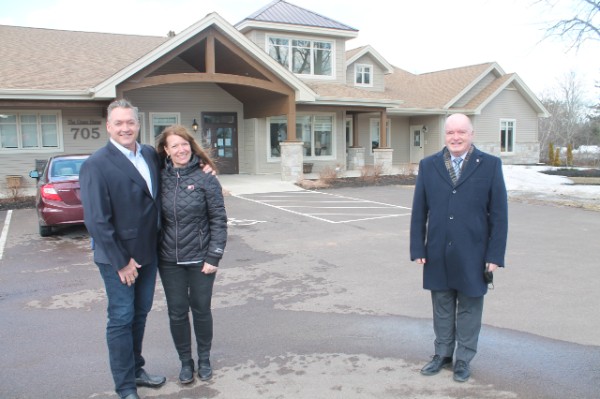
$27.4 million increase in funding for adult residential facilities
RIVERVIEW (GNB) – The provincial government is increasing the funding allocated to adult residential facilities for services provided to seniors and to people with a disability.
For the 2021-22 fiscal year, the government will provide a retroactive payment of $20.1 million through an increase to the per diem costs for the services provided to 7,000 residents. A permanent increase of $10 per resident per day will come into effect on Jan. 1, 2023, totalling an annual increase of $27.4 million.
“Adult residential facilities are important components in our long-term care system,” said Social Development Minister Bruce Fitch. “They provide the essential services that allow adults with a disability and seniors to get the care they need in their own communities, thus avoiding more costly services such as nursing home placements and hospitalization.”
The Department of Social Development provides per diems to adult residential facilities for subsidized clients based on an established rate and assists clients with the cost of living in these facilities when they are unable to pay the full cost. In special care homes, about 90 per cent of long-term residents and all the clients of the Disability Support Program are subsidized.
The department has been working with its partners, the New Brunswick Special Care Home Association and L’Association Francophone Des Établissements de Soins Spéciaux Du N.-B., to evaluate the per diems and establish a funding model. Following the complete implementation of the increases, the per diem will vary between $100.86 and $163.91, depending upon the level of care provided to the resident.
“Our association was pleased to work with the government at the committee level to find the right funding model for sustainable care in the adult residential care sector,” said John Grass, vice-president of the New Brunswick Special Care Home Association and owner of Grass Home special care home in Riverview. “We look forward to pursuing the collaboration with the provincial government in providing important services to New Brunswickers.”
The new investment will increase the total annual budget for per diem in adult residential facilities to about $197 million in 2023. The increase will help alleviate the increase in costs at these facilities.
There are about 475 adult residential facilities in the province providing care and services to about 7,000 residents. The breakdown is as follows:
- Special care homes provide care to about 4,000 seniors as well as to 1,863 adults with disabilities.
- Memory care and generalist care homes provide care to 532 people.
- Community residences provide care to about 595 people, the majority of whom are adults with a disability.
“This investment in the operational costs of the adult residential facilities is in addition to the investment made last year to increase wages for workers in these important long-term care facilities,” said Fitch. “We have invested $12.4 million to fund wage increases for over 10,000 workers in the human service sector, including special care home workers, community residence workers, home support workers and family support workers.”
The long-term care system in New Brunswick offers a continuum of support to people who can no longer live safely in their own homes. Special care, memory care and generalist care homes and community residences provide varying levels of service to clients. Care and supervision in these types of facilities is provided primarily by personal support workers or human service counsellors. Nursing homes provide care to people who benefit from access to 24-hour nursing care. Per diems differ for each type of facility.
In addition to the increased spending for adult residential facilities, the province is also increasing the hours of care in nursing homes to 3.3 hours per resident in April. This represents a $15 million increase in the annual budget for services in the 71 nursing homes, and their 4,953 beds, across the province.
The government also plans to increase the number of licensed nursing homes to 80 over the next few years.
“The provincial government is dedicated to ensuring that our health-care and long-term care systems provide people with the right kind of care at the right time,” said Fitch. “Our adult residential facilities, as well as our network of nursing homes, play a key role in the continuum of care for the benefit of our aging population.”
